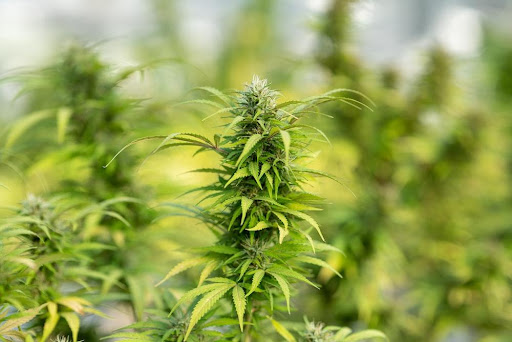
The Crucial Differences between THC and THCA
When it comes to cannabis, most people are familiar with THC, the compound responsible for the “high” that users feel. However, there’s another equally important but less famous compound called THCA (tetrahydrocannabinolic acid).
Both of these compounds exist in the cannabis plant, and at first glance, their names look almost identical. So, what sets them apart? In this article, we will delve into the crucial differences between THC and THCA, exploring how these compounds affect your body, their medicinal benefits, and how to make the most out of them.
Let’s start by breaking down some myths and getting to the heart of what makes these compounds distinct yet intrinsically linked.
The Chemistry Behind THC and THCA: More Than Just an “A”
Despite sharing a very similar molecular structure, the presence or absence of a single “A” makes a world of difference. THCA is actually the precursor to THC. This means that when a cannabis plant is growing, it produces THCA, not THC. The conversion from THCA to THC happens through a process called decarboxylation, which is initiated by heat.
When you smoke or vaporize cannabis, the heat transforms THCA into THC. But if you were to eat the plant raw, you’d be consuming THCA, not THC.
It’s a bit like how a caterpillar transforms into a butterfly: same origin, different outcome. Except in this case, the “caterpillar” (THCA) doesn’t make you high, but the “butterfly” (THC) does. Understanding this distinction is critical, especially if you are interested in the medicinal or therapeutic aspects of cannabis.
Psychoactive Effects: Why THC Gets You High, and THCA Doesn’t
The difference between THC and THCA lies within psychoactive properties—or lack thereof. THC is the compound responsible for the euphoric, mind-altering effects associated with marijuana use. It interacts with the endocannabinoid system in your brain, binding to CB1 receptors and creating the sensation commonly referred to as being “high.”
THCA, on the other hand, doesn’t possess these psychoactive properties. You could consume it in its raw form and not feel any of the ‘high’ associated with cannabis. This is hugely beneficial for people interested in the medicinal properties of cannabis but who want to avoid its psychoactive effects.
If you’re using cannabis for medicinal purposes like pain relief or to treat symptoms of certain conditions, understanding this difference could significantly impact your experience and treatment outcomes.
Medicinal Benefits: Both Sides of the Coin
While THC has been widely studied for its medicinal benefits, including pain relief, appetite stimulation, and nausea reduction, THCA has been less explored. However, emerging research is showing promising signs that THCA also has a lot to offer.
Some studies suggest that it has anti-inflammatory and neuroprotective qualities, and it may also help with nausea and appetite loss.
Since THCA does not produce psychoactive effects, it can be a more approachable option for those who are wary of the ‘high’ that comes with THC. Imagine being able to treat your symptoms without compromising your cognitive function—that’s the potential THCA holds.
This allows for a broader range of people, including children and elderly patients, to explore cannabis as a treatment option without the psychoactive side effects.
How to Utilize THC and THCA: Choices for Consumers
Understanding the differences between THC and THCA can also guide you in choosing the right cannabis products. If you’re looking for psychoactive effects, you’ll want to opt for products that are high in THC.
These typically come in the form of dried flower buds, oils, or edibles that have been cooked or baked to initiate the decarboxylation process.
On the other hand, if you’re interested in the non-psychoactive benefits, you’ll want to look for products that contain THCA. These could be in the form of raw cannabis juices, tinctures, or even topical applications.
Since heat converts THCA into THC, consuming the plant in its raw form or using products that haven’t been exposed to heat ensures that you’re getting THCA.
Legal Considerations: Navigating the Gray Areas
When discussing anything related to cannabis, the topic of legality is always looming in the background. The legal status of THC is quite complex and varies from place to place. In some U.S. states, THC is fully legal for both medical and recreational use, while in others, it remains a controlled substance.
In contrast, THCA often exists in a sort of gray area because it’s not psychoactive. Technically, if a cannabis plant hasn’t been decarboxylated, it won’t contain THC and thus may not fall under the same stringent legal classifications.
However, this distinction may not always save you from legal trouble. Some jurisdictions consider any form of cannabis, regardless of its THC or THCA content, to be illegal.
This poses a challenge for individuals who seek to use THCA for its potential medicinal properties. The good news is that as public opinion shifts and more research is conducted into the benefits of both THC and THCA, we may see changes in the legal landscape.
Until then, it’s crucial to be aware of the laws in your specific location. Understanding the different legal considerations for THC and THCA can help you navigate this tricky terrain and make choices that are both beneficial for your health and within the boundaries of the law.
Conclusion
The differences between THC and THCA go far beyond just an extra letter in their acronyms. From their chemical structures to their effects on the human body and their potential medicinal benefits, these compounds offer distinct experiences and applications.
As consumers become more educated about what these compounds do, they can make more informed decisions, tailoring their cannabis use to better suit their needs and preferences.
Whether you’re using cannabis for recreation, symptom relief, or overall well-being, understanding these differences is crucial for maximizing the benefits while minimizing any unwanted side effects.







